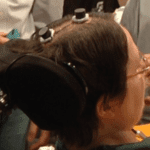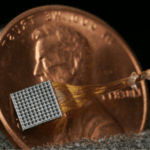| HAVE YOU EXPERIENCED A STROKE, SPINAL CORD INJURY, TRAUMATIC BRAIN INJURY OR DIAGNOSED WITH CEREBRAL PALSY?
The Shirley Ryan Ability Lab and Northwestern University Department of Physical Therapy and Movement Sciences have a number of ongoing research studies for individuals diagnosed with stroke, spinal cord injuries, traumatic brain injury or cerebral palsy. We are collecting the names of individuals who would like to be contacted about potential future research opportunities. If you would like your name placed on a list of possible research participants, or if you have questions, please contact Carolyn Ostrowski (312) 238-2892 or costrowski@sralab.org Participants in the Clinical Research Registry (CRR) will: · Answer questions about their stroke, spinal cord injury, traumatic brain injury or cerebral palsy. · May complete physical assessments · Have their name added to a database Participants must meet the following criteria: • Any individual between 0-90 years of age • Individuals ages 12-17 Benefits to Participation include: IRB Project #: STU00212839 |
Research Study

Research Study
BRAIN-COMPUTER INTERFACE FOR DEVELOPMENT OF BRAIN-CONTROLLED ASSISTIVE TECHNOLOGY
If you:
1. Have limited or no ability to use both hands
2. Are 22-70 years old
3. Live within 2 hours of the University of Chicago
You may be eligible to participate in a research study to determine if long-term recording of brain activity to control a robotic prosthetic arm and other technology for activities of daily living is safe and effective. You would undergo surgery to place four small electrode arrays in your brain. The wires would pass through your skin so we could record signals to control the arm for 1.5-5.5 years.
For more information contact John Downey: 773-834-5204 or bcistudy@uchicago.edu
SCI Trials
SCITrials.org is a new searchable platform that makes it easy for people with spinal cord injuries who want to participate in clinical trials to find ones suited to their interests. The platform is a collaboration between SCI researchers and people living with SCI.
“SCITrials.org is making clinical trials easier to access and easier to understand, thus allowing the community to be more involved in the development and execution of research,” said Barry Munro, the chief development officer with the Canadian Spinal Research Organization/American Spinal Research Organization and also a wheelchair user with an SCI. “With the ability to be more engaged and included in clinical trials, we believe our community is much better served.”
When you go to SCITrials.org on your smartphone, it asks for your location, injury level, severity, and time since injury. Fill in the boxes and hit Find Trials. If you click More Info on one that’s recruiting, you’re given further options: follow, hide, and apply. It’s that easy to use.
The platform filters trials to show only those from legitimate universities, research centers, and hospitals. You can save your unique trial preferences and receive emails letting you know when relevant trials in their area become available. SCITrials.org is a joint initiative of the North American Spinal Cord Injury Consortium, the Canadian/American Spinal Research Organization, and endParalysis.org, with development provided by fuelService.org.
This article is from New Mobility Magazine, a publication of United Spinal Association.



